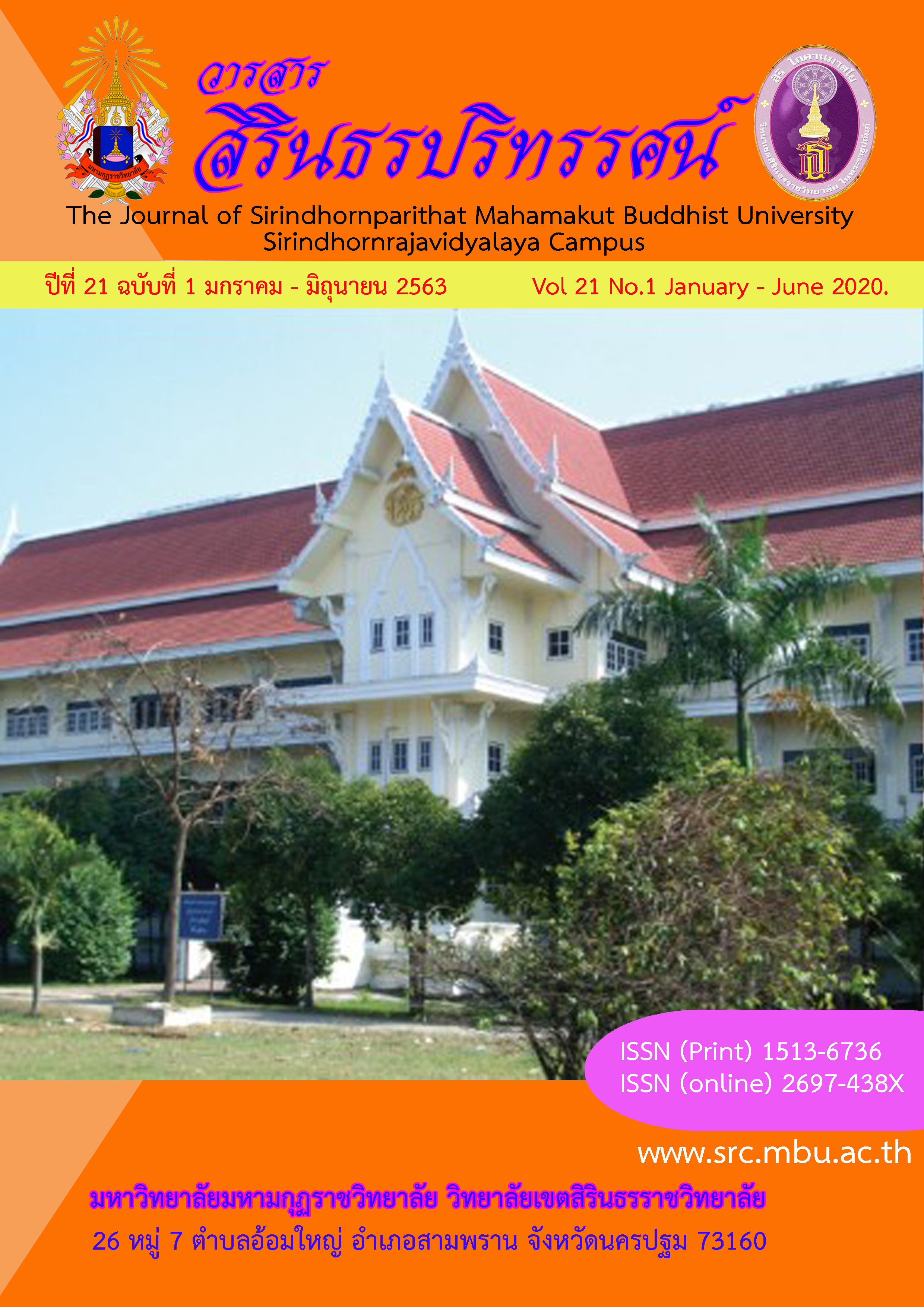English Skill Development of First Year Nursing Students, Boromarajajonnani College of Nursing, Ratchaburi through Cooperative Learning in an English Preparation Project
Keywords:
English Skill Development, Cooperative Learning, Nursing Students, Boromarajonnani College of Nursing, RatchaburiAbstract
Abstract
This study aims to 1) compare the English scores of pretest and posttest of the first year nursing students of Boromajonnani College of Nursing, Ratchaburi before and after participating in the English Preparation Project 2) study levels of students’ satisfactions of Boromajonnani College of Nursing, Ratchaburi, on cooperative English learning activities in the English preparation Project. 3) study opinions of Boromajonnani College of Nursing, Ratchaburi on cooperative English learning activities in the English preparation Project. The population of this study was 110 first year nursing students of Boromajonnani College of Nursing, Ratchaburi in the first academic year of 2019. The research instruments consisted of 1) 50 items of English pretest and posttest 2) a survey of satisfaction on cooperative English learning activities in the English preparation Project. For data analysis, the researchers employed the statistics of t-test, percentage, mean (X) and standard deviation (SD) and descriptive analysis of students’ opinions.
The results of the study indicated the following. 1) the posttest scores of the students were higher the posttest. The pretest score was 35 and the posttest score was 36. The average of posttest was 20.15 and the standard deviation was 5.646. 2) The students in overall satisfied with the project with the mean of 4.0 and SD of 0.89. The students had the highest level of satisfaction on the topic that “ All members see the progress of the group more than focusing on oneself” with the highest mean of 4.0 and the SD of 0.95. 3) Most of the students impressed with the project and the cooperative learning activities provided. They reflected that the activities were good and helped improve their English skills well. They had a chance to learn together and helped each other. They also reflected that they had a chance to perform their roles differently. This study suggests that there should be the concerned activities continuously and frequently which will help improve students’ English communicative competence and there should be the pretest and posttest which focusing on more English communication which are concurrent to cooperative learning activities.
Keywords: English Skill Development, Cooperative Learning, Nursing Students, Boromarajonnani College of Nursing, Ratchaburi
References
Yash, P.S. and Anju, A. (2011). Introduction To Cooperative Learning. Indian Streams Research Journal, Volume 1, Issue 2, March 2011, pp.1-9. Available online at www.isrj.net
Castle Jr., T.D.( 2014). The impact of cooperative learning on the development of need For cognition among first-year college students. PhD thesis. The University of Iowa, United States of America.
Johnson, D.W., Johnson, R.T. and Stanne, M.B. (2000) Cooperative Learning Methods: A Meta-Analysis. Research report. University of Minnesota. United States of America.
Richards, Jack C. and Rodgers, T. (1999) Approaches and Methods in Language Teaching: A description and analysis. Fifth Edition. Cambridge University Press.
Robyn M. Gillies (2016) Cooperative Learning: Review of Research and Practice. Australian
Journal of Teacher Education, Vol. 41, 3, March 2106 pp.38-54.
Slavin, R.E. (1983). When does cooperative learning increase student achievement?. Psychological Bulletin, 94(3), 429–445. Available at https://doi.org/10.1037/0033-2909.94.3.429
Slavin, R.E. (2006). Research on Cooperative Learning: an International Perspective. Scandinavian Journal of Educational Research, Vol.33, No.4, 1989 pp.231-243. Available at https://doi.org/10.1080/0031383890330401
Tsay-Vogel, M. and Brady, M. (2010). A Case Study of Cooperative Learning and Communication Pedagogy: Does Working in Teams Make a Difference? International Journal for the Scholarship of Teaching and Learning 10(2):78-89.
Downloads
Published
Issue
Section
License
บทความที่ได้รับการตีพิมพ์เป็นลิขสิทธิ์ของ มหาวิทยาลัยมหามกุฏราชวิทยาลัย วิทยาเขตสิรินธรราชวิทยาลัย
ข้อความที่ปรากฏในบทความแต่ละเรื่องในวารสารวิชาการเล่มนี้เป็นความคิดเห็นส่วนตัวของผู้เขียนแต่ละท่านไม่เกี่ยวข้องกับหาวิทยาลัยมหามกุฏราชวิทยาลัย วิทยาเขตสิรินธรราชวิทยาลัย และคณาจารย์ท่านอื่นๆในมหาวิทยาลัยฯ แต่อย่างใด ความรับผิดชอบองค์ประกอบทั้งหมดของบทความแต่ละเรื่องเป็นของผู้เขียนแต่ละท่าน หากมีความผิดพลาดใดๆ ผู้เขียนแต่ละท่านจะรับผิดชอบบทความของตนเองแต่ผู้เดียว




